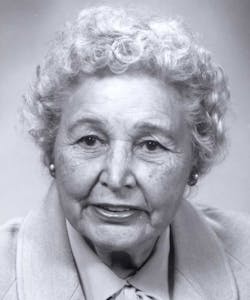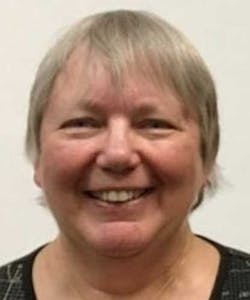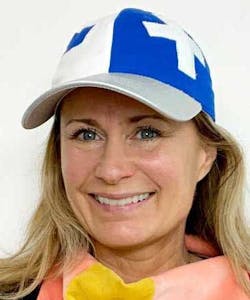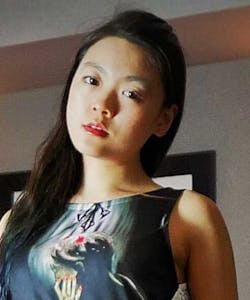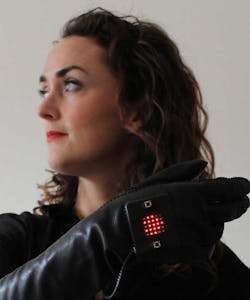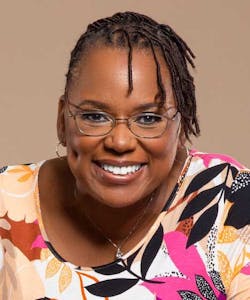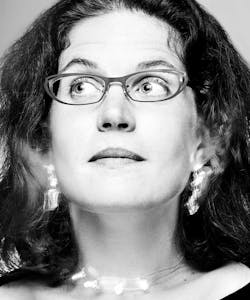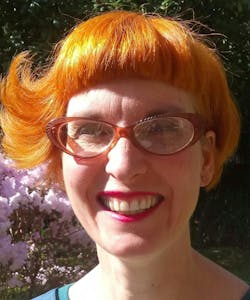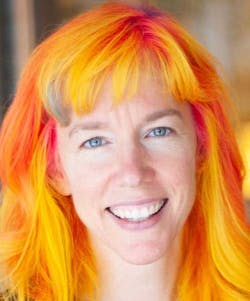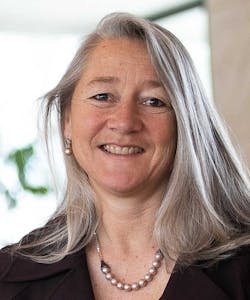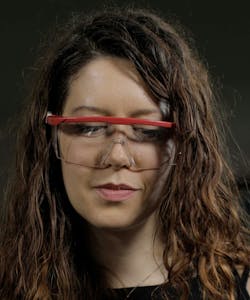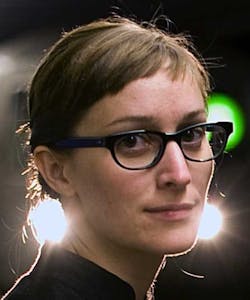Women You Should Know: Celebrating International Women in Engineering Day
On June 23, we take a moment to celebrate the women shaping our world through engineering, science, technology, and innovation. This International Women in Engineering Day, we look at some of the most remarkable and influential women working across every corner of engineering, from spaceflight and robotics to wearable tech and open-source hardware. Their stories are diverse, their work is foundational, and they serve as a reminder that engineering is as much about creativity and curiosity as it is about code and circuitry.
Mary Golda Ross
Mary Golda Ross, a Cherokee-born mathematician, was the first Native American woman to work as an engineer in the U.S. space program. She made history as the first female and only Native member of a highly secret team of the Advanced Development Projects, also known as Skunk Works, at Lockheed Aircraft Company (now Lockheed Martin).
Ross began her career as a math and science teacher for rural kids in Oklahoma before eventually designing fighter planes for Lockheed. She helped solve design issues centered around high-speed flight and challenges associated with aeroelasticity for fighter jets. She was also able to perform complex calculations for aerospace design using only a pencil, slide rule, and Friden computer.
Ross would go on to have a hand in developing preliminary design concepts for interplanetary space travel, crewed and uncrewed earth-orbiting flights, and studies of orbiting satellites for both defense and civilian purposes. Some of her work is still classified to this day.
Joan Horvath
Joan Horvath is an aeronautical engineer who has spent her career bridging the worlds of high-tech engineering and accessible STEM education. She holds a degree in aeronautics from MIT and has worked in aerospace, academia, and the maker movement.
She began her career at NASA’s Jet Propulsion Laboratory (JPL), contributing to spacecraft systems engineering and mission operations. She later took on roles in education and the startup world, including co-founding Nonscriptum LLC, a consulting firm focused on using 3D printing and open-source tools in education and technical training.
Kelly Heaton
Kelly Heaton is an artist and electrical engineer based in New York City and holds a BA from Yale and an MS from MIT’s Media Lab. Her work combines analog electronics and visual art, which is difficult to categorize as it merges functionality with visual distinctiveness.
Heaton specializes in analog electronic sculptures, unique pieces that produce their own sound without code or digital playback. Her signature “circuit birds” and “cricket” sculptures are designed around components such as 555 timers, oscillators, and filters, assembled by hand to mimic the behavior of living organisms. These creations aren’t simulations—they are physical objects that generate chirps in real-time, giving a lifelike presence using innovative circuit designs.
Kitty Yeung
Dr. Kitty Yeung is a modern-day Renaissance woman—a physicist, engineer, artist, musician, and fashion designer all rolled into one. Yeung earned a Ph.D. in Applied Physics from Harvard in 2015, with a thesis on plasmonic circuits in 2D electron systems, and holds bachelor’s and master’s degrees in Natural Sciences from Cambridge.
Yeung cofounded Wear It, an AI-powered digital wardrobe platform that provides real-time virtual try-on experiences. She also founded a sustainable and STEAM fashion brand, Art by Physicist, and the fashion-tech incubation at Microsoft, where she worked as its founder and CEO. What’s more, Yeung produced Microsoft’s quantum learning materials, including the MS Learn quantum modules and the Quantum Learning website; is the author of the comic series Quantum Computing & Some Physics; and lectured at HackadayU and Microsoft Reactor on Quantum Computing.
Helen Leigh
Helen Leigh is another unique innovator, a creative technologist and a hardware hacker whose work encompasses musical instruments, e-textiles, and open-source community building. Leigh currently serves as Head of Community at Crowd Supply, where she designs hands-on content and leads live-streamed interviews with hardware creators.
Her signature projects combine craft and tech, from the DIY Mini MU gesture-controlled musical glove to sonic textile instruments made from soft circuit embroidery and conductive thread. She’s also the author of The Crafty Kid's Guide to DIY Electronics, which features playful maker projects like LED-stitched circuit flowers and trash-powered robots, all backed by workshops for the children.
Leigh is also a STEM advocate and educator, running global “hardware happy hours,” teaching physical computing at universities, and regularly contributing to Make: Magazine.
Dr. Carlotta Berry
Dr. Carlotta Berry is a professor of electrical and computer engineering at the Rose-Hulman Institute of Technology. She’s also co-director of the Rose Building Undergraduate Diversity (ROSE-BUD) program, which helps young African-American girls and underrepresented minority students take advantage of STEM-based education via scholarships and other program activities.
Furthermore, Dr. Berry helped found the multidisciplinary robotics program and is an organizer and judge for FIRST Robotics competitions. She also started NoireSTEMinist Educational Consulting, whose mission is designed to bring robotics to the streets with low-cost, modular, open-source, 3D-printed robots.
AnnMarie Thomas
AnnMarie Thomas is a mechanical engineer, author, blogger, and advocate for early STEM education. She earned her Bachelor of Science in Ocean Engineering from the Massachusetts Institute of Technology in 2001 and attained both an MS in 2002 and a Ph.D. in 2006 in mechanical engineering from the California Institute of Technology.
Thomas founded and led the Playful Learning Lab (at UST), which explored ways to encourage children to embrace playful learning. To that end, Thomas, with the help of her students, created the wildly popular Squishy Circuits, which combines Play-Doh with modular electronics that kids can use to design interactive toys.
Dr. Claire Cassidy
Dr. Claire Cassidy is a professor at the School of Education at the University of Strathclyde, Glasgow, and specializes in Philosophy with Children (PwC), children’s human rights education, and the notion of childhood itself. Cassidy’s research explores how philosophical dialogue empowers children’s studies and how young learners engage in critical thinking, respect, well-being, and citizenship through classroom curriculum.
Cassidy collaborates with local schools, including secure environment settings, and integrates PwC into existing educational frameworks. Her current works include understanding how child-led dialogue influences climate action and political identity, developing training programs to help teachers embed philosophical inquiry and rights-based methods in early education, and ESRC-funded projects like RADICAL and AdVoST, which use dialogue and storytelling to enhance learning.
Christina Cyr
Christina Cyr is the founder, CEO, and Chief Hardware Architect at dTOOR and The Cyrcle Phone, a women-owned consumer electronics company based in Washington State. She holds degrees in biochemistry and physics, along with a master’s in engineering, and combines her talents to create innovative mobile devices.
As the woman who creates “non-rectangular phones for non-rectangular people,” Cyr’s development of the Cyrcle Phone garnered her global attention. The phone offers a more ergonomic design for better handling and interaction with a circular display that’s designed to be more intuitive than traditional smartphones.
Since its release, she has taught over 200 people how to build their own phones at Maker Faire events and Hackster.io workshops. Cyr also served as a Hackster.io Ambassador (2016–2020), sharing insights into entrepreneurship and inclusive tech leadership.
Kathy Giori
Kathy Giori is an EdTech and IoT Entrepreneur working to promote the adoption of open-source software and hardware learning opportunities around the globe. According to Giori, her goal is to evangelize and teach physical computing principles not only to privileged communities, but also to underserved ones.
She holds a B.S. in electrical engineering from the University of Minnesota and a Master's from Stanford. Giori is responsible for developing MicroBlocks—an open-source blocks programming platform that allows users to learn programming while interacting with a microcontroller. Giori is also the Director of Product Engineering at ZEDEDA and leads the Project EVE initiative, an open-source edge orchestration OS that’s designed to make the IoT easier to secure and scale.
Jen Fox
Jen Fox is a physicist-turned-engineer and educator who combines technical know-how with creative expression to make science and engineering accessible, inclusive, and fun. She holds a BA in Physics from Occidental College and an MS in Mechanical Engineering from UCLA, where she conducted research on dark matter detection, with her work published in leading scientific journals.
Fox founded FoxBot Industries in 2015 as a platform for STEAM (science, technology, engineering, art, and math) education. Her workshops, YouTube videos, and project guides are designed for learners of all ages and are conducted through an innovative approach that melds physical computing, art, and social justice. Her mission is simple: Teach people how to build cool stuff and empower them to use those skills to make the world better.
Alicia Gibb
Alicia Gibb, a trailblazer in the open-source hardware community, is widely known as the founder and Executive Director of the Open Source Hardware Association (OSHWA). She was responsible for creating the OSHWA certification program to help products be clearly identified, community-aligned, and legally shareable.
Before becoming head of the OSHWA, Gibb founded Lunchbox Electronics, creating hands-on kits and leading the ATLAS BTU Lab at CU Boulder, where she educated future makers and innovators. She also served on the ADA Initiative and Open Source Ecology boards and continues to mentor efforts in licensing, diversity, and open infrastructure.
International Women in Engineering Day: More Celebrations Around EBM
Conclusion
From designing fighter jets with a slide rule to building open-source tools that anyone can use, these women are proof that engineering isn’t a one-size-fits-all field. They teach, invent, lead, and inspire, with each making space for more voices, more perspectives, and more possibilities. So, if you're wondering what the future of engineering looks like, it’s already here, and incredible women like these are building it.
>>Check out this TechXchange for similar articles and videos
About the Author
Cabe Atwell
Technology Editor, Electronic Design
Cabe is a Technology Editor for Electronic Design.
Engineer, Machinist, Maker, Writer. A graduate Electrical Engineer actively plying his expertise in the industry and at his company, Gunhead. When not designing/building, he creates a steady torrent of projects and content in the media world. Many of his projects and articles are online at element14 & SolidSmack, industry-focused work at EETimes & EDN, and offbeat articles at Make Magazine. Currently, you can find him hosting webinars and contributing to Electronic Design and Machine Design.
Cabe is an electrical engineer, design consultant and author with 25 years’ experience. His most recent book is “Essential 555 IC: Design, Configure, and Create Clever Circuits”
Cabe writes the Engineering on Friday blog on Electronic Design.

